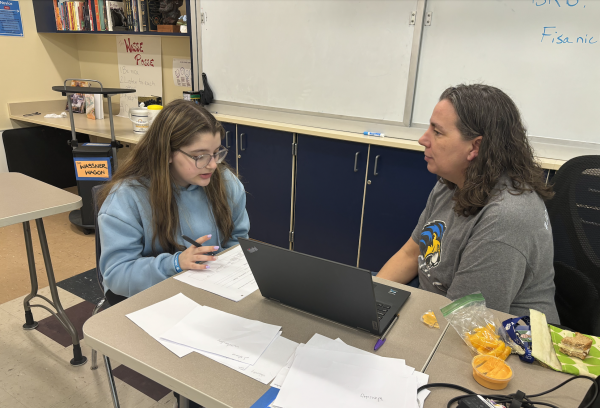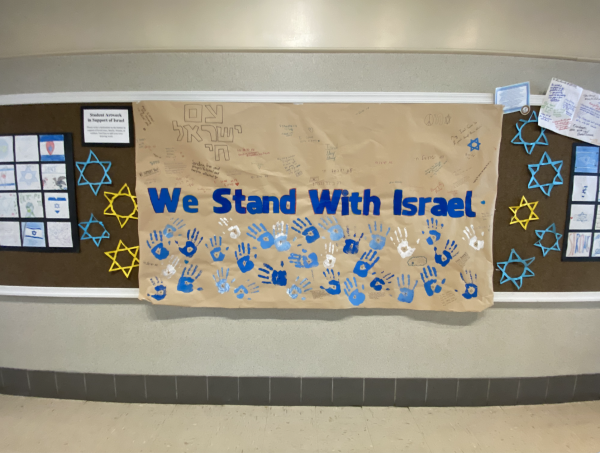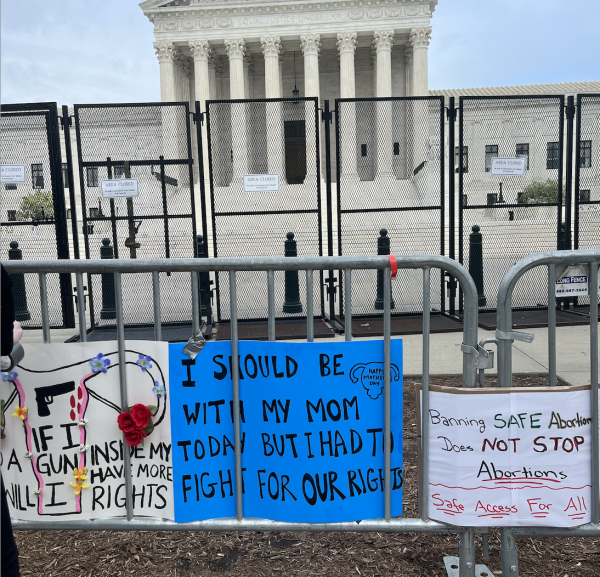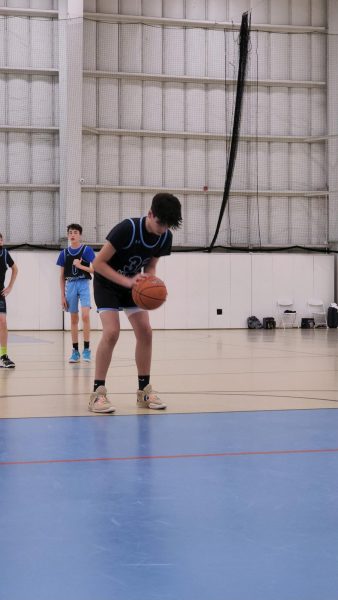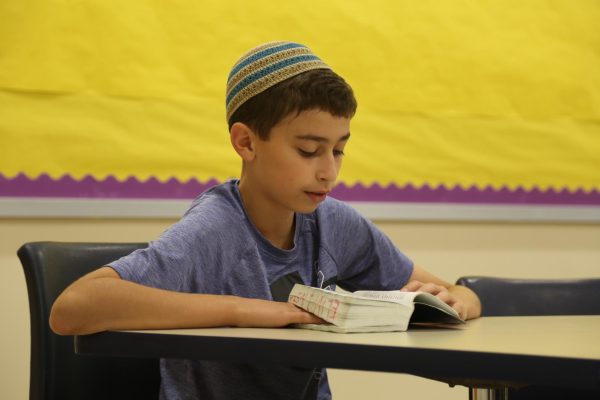Toxic television
September 9, 2022
Growing up, many kids were told that if a boy was mean to us, it meant he liked us.
You wouldn’t tell an adult that if their partner was abusing them physically, it meant that they loved them, so why do we tell little girls that boys just want them to notice them? Why do we say that is an excuse for hair pulling or being chased around the playground?
A lot of the normalization or even expectation of toxicity in youth and teenage relationships can be attributed to the TV industry. TV shows that feature grooming, stalking, controlling behavior and possessiveness in an idealized way incite the viewer to find this behavior romantic.
Neurologists say that our brains don’t fully form until the age of 25, so children and teens are by far the most impressionable group of people in the world. This makes the normalization of toxic relationships in the media even more dangerous.
Two TV shows that spotlight toxic relationships are “Pretty Little Liars” and “You.” Each TV show has its own form of manipulation.“Pretty Little Liars” is pretty textbook abuse when it comes to the show’s most popular relationship, Ezra Fitz and Aria Montgomery.
The pair meet at a bar when Aria is 16 years old and Ezra is 22, and only find out about each other’s identities when Aria comes into her English class and finds out that the man that she kissed is, in fact, her new teacher.
Seeing who the other is, they decide to break it off. Great. Aria even tries to switch classes so she can have a different teacher because it would be too uncomfortable for her and Ezra to interact on a daily basis. About twenty minutes later, however, Aria shows up at Ezra’s apartment and they get back together.
In my eyes, Ezra groomed Aria. By definition, grooming is when someone builds trust, an emotional connection, and a relationship with someone so they can manipulate, exploit and abuse them. This is exactly what Ezra does to this 16- year-old girl. Ezra manipulates Aria into having a romantic and sexual relationship knowing that she is 16 and his student.
Ezra mentally abuses Aria for the entirety of the show. Every time Aria decides that she is not comfortable having a romantic and sexual relationship with her teacher, Ezra shows up and does something for her, convincing her that they are meant to be.
The couple goes through the abuse cycle on a regular basis. The calm phase when things are looking up for them, and then the tension building when she finds out something new about his past or him in general.
To top it off, the show portrays anyone who opposed their relationship as the villains. When Aria’s parents find out about their relationship, they are immediately horrified and disgusted. Yet, the show paints it as them being unsupportive as parents.
The most upsetting part for me wasn’t within the show but rather the fan reaction. Fans who didn’t support the relationship were written off as haters, which demonstrates how effectively the idealization of this toxic relationship infects the mind of the viewer.
Not only is the abuse romanticized, but the idea of having feelings that go against an inappropriate relationship is portrayed as intolerable. Opposers of the relationships were actually in the right, so that viewpoint should be promoted, not vilified. This portrayal will not only convince viewers that Ezra and Arias’ relationship is OK, but that if a friend or parent finds their loved one in an abusive relationship, it would be too annoying or hateful to intervene.
The show “You” takes a different approach to abuse, outlining a more blatantly violent path. The National Coalition Against Domestic Violence says that 19.1 million women and 6.4 million men in the United States have been stalked.
Meet Joe Goldberg, expert stalker.
Joe Goldberg watches his crushes and follows them around, then dates them until his instinct is to kill them. It does not take much to see that the relationship between Joe Goldberg and Love Quinn is physically and mentally abusive.
The two kill for each other and harm each other. Yet, the show is so effective at glorifying the relationship that I rooted for them to work out in the end.
The show continues with two seasons of Love being Joe’s love interest and continues in the cycle of abuse, starting with tensions rising and ending with a blissful honeymoon phase until the next cycle starts again.
These TV shows romanticize the abuse that couples go through. Abuse is scary to hear about, but to watch it unfold in front of you? It’s intense. So why was I hooked onto Ezra and Aria being together? How could I support that relationship, knowing that she was a student and he was her teacher? I knew I wasn’t alone in my confusion.
TV shows can make relationships that are not healthy seem healthy. Writing, direction and production decisions can manipulate the opinion of the viewer by tailoring language, lighting, music and costumes to evoke a certain feeling. But just because a TV show says that it is OK does not make it OK.
As viewers, it’s imperative that we try to consume the good side of media, the positive relationships. We have the choice to watch and to not watch these TV shows, we just have to exercise that choice.
Adults in the industry are the ones who are writing, producing and acting in this type of media. While as viewers we have to make good choices, it’s also on the adults in the media.
The #MeToo movement has raised awareness about domestic and sexual abuse and endeavors to undo some of the damage the TV industry has done on the teenage psyche. Luckily, there are alternative shows that have the same thrills as these shows, without the abuse or manipulation. For example: if you enjoyed thrillers like “Pretty Little Liars,” you may enjoy “Only Murders in the Building.” Or if you enjoy more teenage shows of love, try “Dash and Lily,” “Dickinson,” “When Calls the Heart,” “This is Us,” “Modern Family,” “Brooklyn Nine-Nine,” “How I Met Your Mother” or even “Teen Wolf.”
The elements that make “Pretty Little Liars” and “You” exciting are the complexities of the characters and the drama they create. You can find the same moral ambiguity and excitement in other shows that do not manipulate your sense of toxicity in relationships.
Looking for healthy relationships being portrayed can be perceived as boring. It is not just up to Hollywood to make these changes, it’s up to us as an audience to make healthier choices.
Boring is better than abuse.









